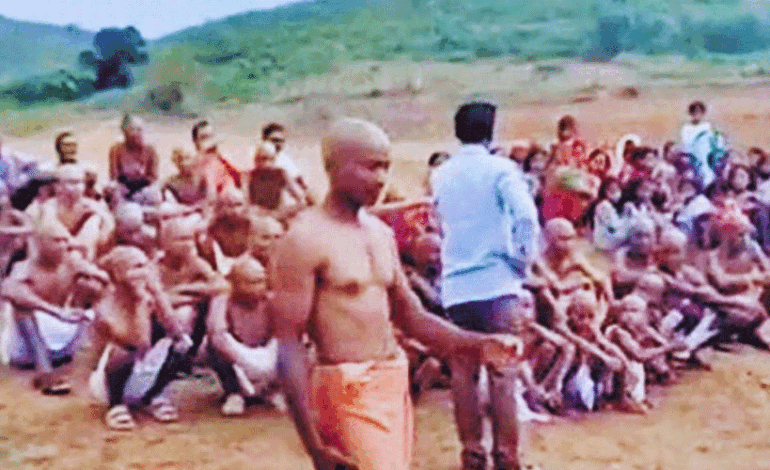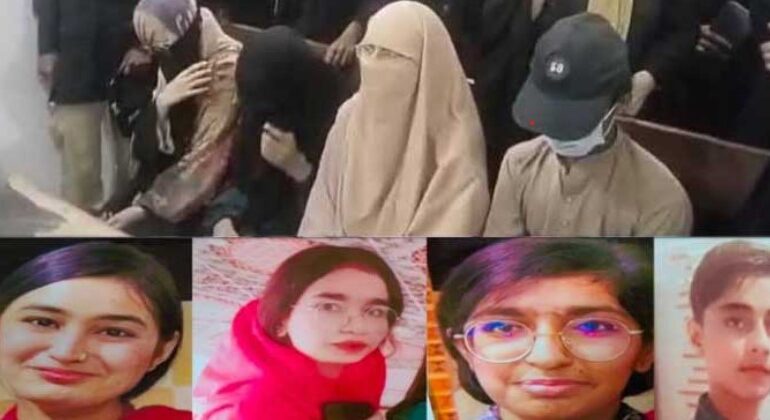
Odisha Family Shaves Heads in Purification Ritual After Inter-Caste Marriage Sparks Backlash
RAIGAD, ODISHA – June 2025:
In a stark reminder of the deep-rooted caste prejudices still prevalent in parts of rural India, around 40 members of a tribal family in Odisha’s Raigad district publicly shaved their heads as part of a ritual “cleansing” ceremony after a young woman from their family married a man from a different caste.
The woman, a member of a Scheduled Tribe (ST) community, reportedly tied the knot with a Scheduled Caste (SC) youth from a nearby village, defying societal and familial pressures. Though the marriage is fully legal under Indian law, it triggered severe backlash from their village community.
Social Boycott and Ritual Punishment
Sources say the bride’s family was ostracized by locals who considered them “impure” for violating rigid caste boundaries. In an attempt to regain social acceptance, nearly 40 male members of the extended family underwent a “Shuddhi Karan” (purification ritual)—a practice that included shaving their heads in public and offering animal sacrifices.
A video of the ritual, which has since gone viral on social media, shows rows of men having their heads shaved by barbers as part of the so-called cleansing process. Goats and chickens were reportedly sacrificed, and the full expense of the ceremony was borne by the bride’s family.
Officials Investigating; Rights Groups Alarmed
District authorities have acknowledged the incident and launched a formal investigation after the viral video prompted widespread criticism.
“This isn’t merely a social tradition—it reflects the entrenched caste discrimination that continues to plague rural India,” said a local human rights lawyer. “It blatantly violates the Indian Constitution, which guarantees freedom, equality, and the right to marry across castes.”
While inter-caste marriages are protected under both the Indian Constitution and the Special Marriage Act, they often draw hostility and even violence in many conservative regions. Human rights advocates argue that India’s anti-discrimination laws remain poorly enforced, especially in rural areas where traditional customs often trump legality.
Calls for Stronger Legal Action
Activists are now demanding accountability and action against those enforcing discriminatory rituals, saying such acts not only humiliate families but also reinforce caste-based segregation.
“It’s time India moves from symbolic legal protections to real societal change,” said a Delhi-based anti-caste activist. “We need stronger enforcement, community education, and swift punishment for anyone promoting or enforcing such backward practices.”






